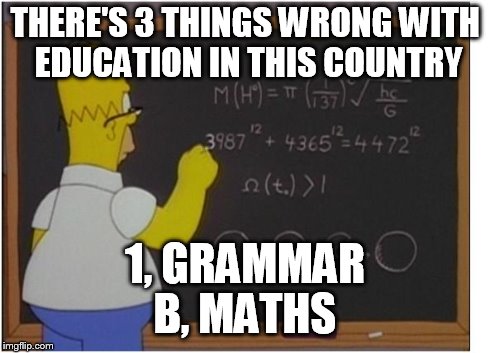

For example, here’s a joke that people loved in graduate school but always seemed pretty dumb to me:Ī biologist, a chemist, and a statistician are out hunting. A joke in the Greek language is not necessarily a “Greek joke.” A math joke is something that deals with, well, math. It’s just a joke that only people with a little mathematical education will be able to get. The “square root of negative one” is not i it is represented by i.īut even if we grant that this is a joke, ultimately, it isn’t a math joke. Note that “two cubed” and “sigma pi” are puns - they depend upon the sound of what they are. What bothers me is exactly what would bother Bill Clinton: what the definition of is is. And obviously, yes: the imaginary unit is always referred to as i. It is the imaginary unit: the most basic imaginary number - beloved by differential equations everywhere. The question is what one is supposed to make of that square root of negative one. It is vaguely clever, the same way it was when we were kids spelling words with upside down calculators. But I don’t necessarily have a problem with this. I read it as, “Imaginary unit eight summation pi.” And from there I quickly managed “ate some pie.” But even that seemed stupid because I don’t recall ever using the phrase “sum whatever.” I might use “sum of whatever.” Okay: I am a super pedant. And frankly, I think that is all that ought to be necessary. When I am confronted with such a thing, I just read it out literally. The joke here is that the math symbols are supposed to read out, “I ate some pie.” But that doesn’t exactly pop out of it. But there is something very subgenius about the whole thing, if you ask me. Of course, the purpose of such “jokes” is not to be funny but to be clever. But roughly the same thing can be said for the math joke. Then it pulled back and we saw that actually Homer was laughing at the dog with a box on its head. It lasted a long time, I assume to give the audience the chance to “get” the joke. But even with that, it wasn’t a sharp attack - just silly people casting off one orthodoxy for another.īut this image struck me because of the “math joke.” The screen at first showed Homer apparently laughing at the joke. Still, it was nice to see a couple of shots taken at the idea that technology can serve as a substitute for good education. The Simpsons has been thoroughly infected by the Family Guy “anything for a joke” philosophy, so the episodes don’t hang together the way they once did. Not that I’m complaining! I like that the episode makes fun of education fads. This is a still from The Simpsons episode “ Mathlete’s Feat.” This is what society thinks of people like me.


 0 kommentar(er)
0 kommentar(er)
